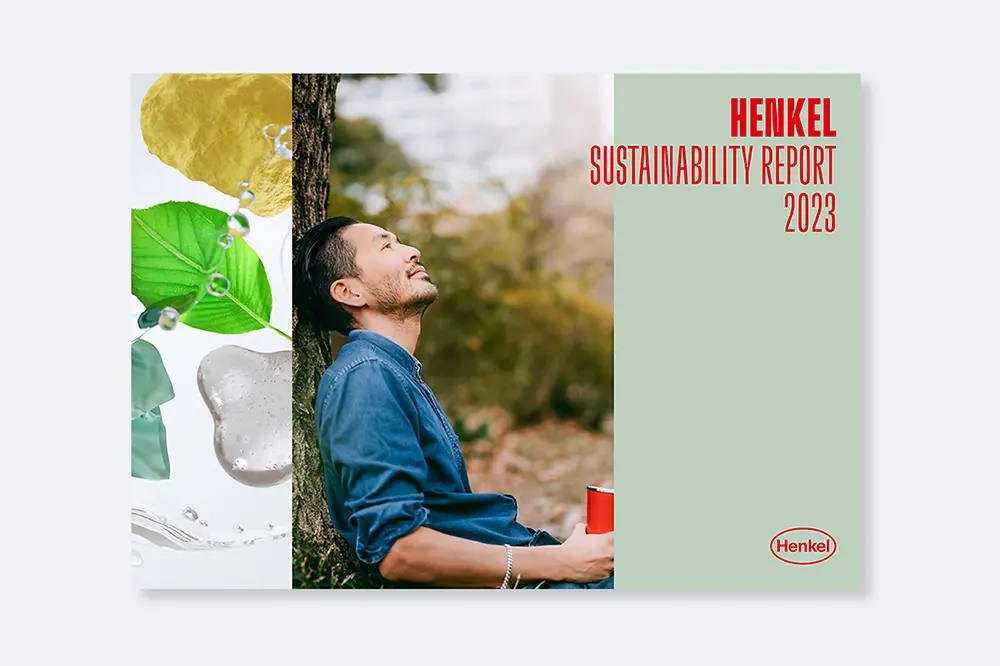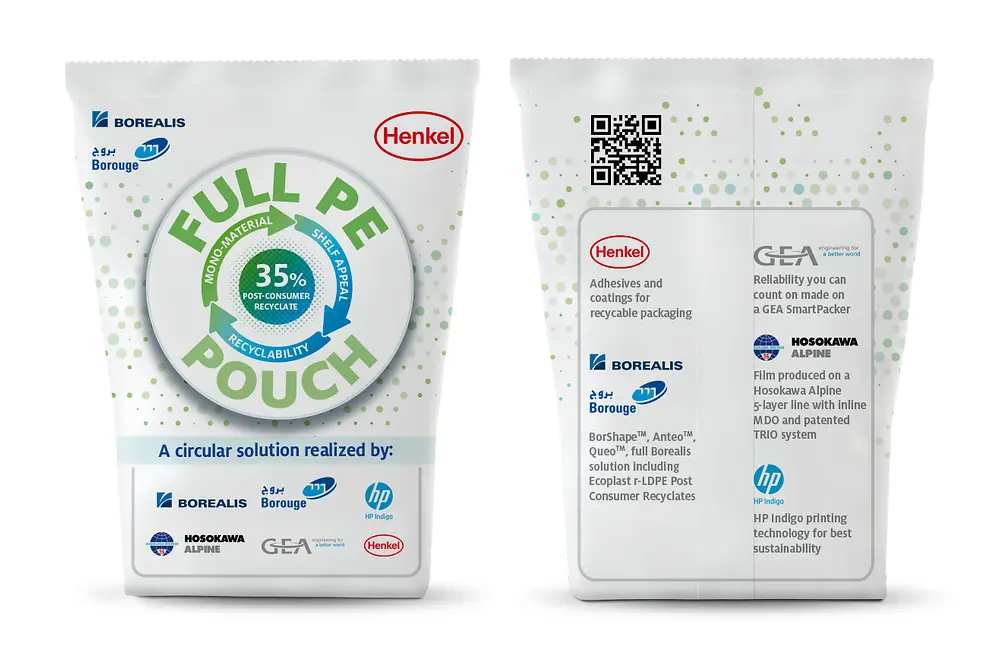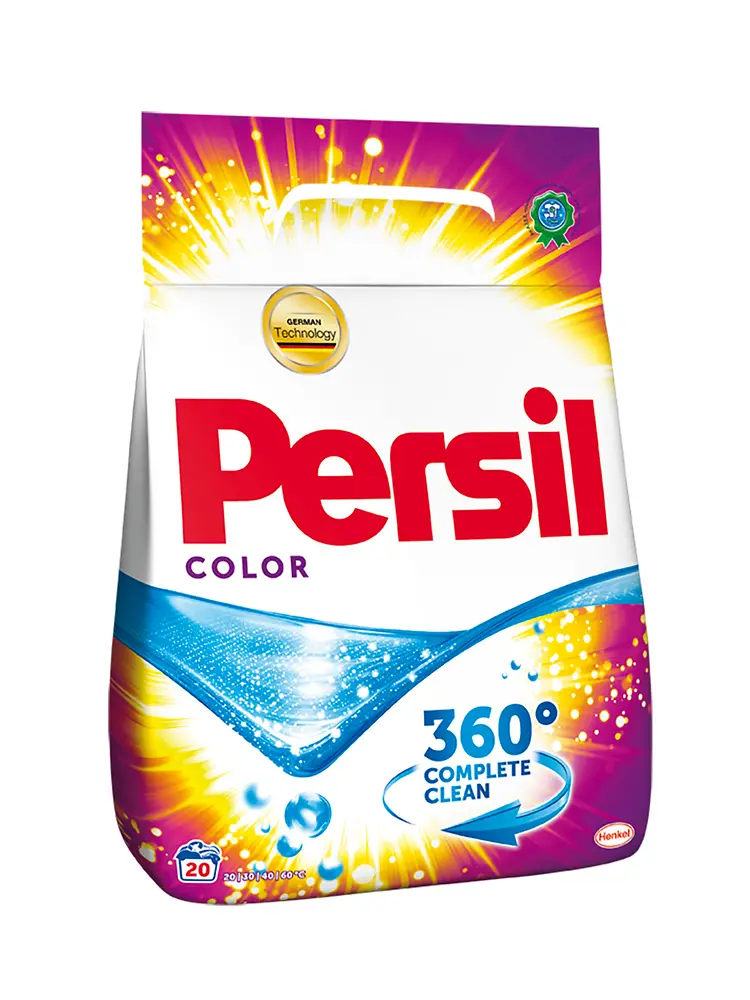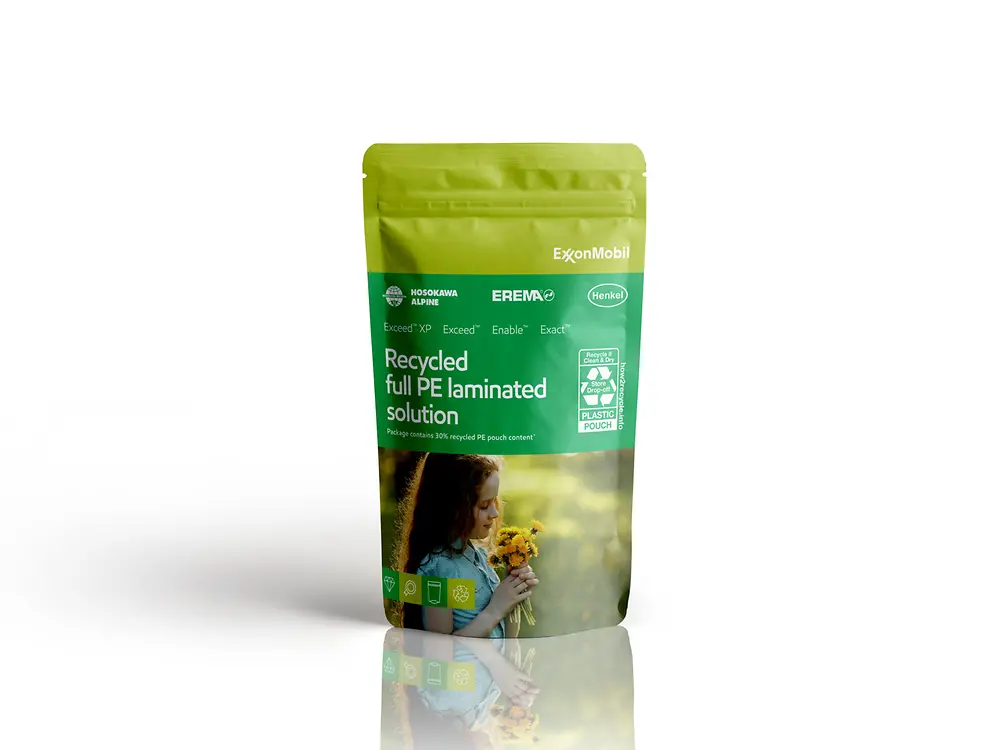Learn more about Henkel Brands & Businesses in UK & Irelands: Includes useful information about the brands, technologies and latest innovations in our business areas: Henkel Adhesive Technologies and Henkel Consumer Brands.
16 Oct 2019 Düsseldorf / Germany
Newly launched range of adhesives and coatings enables improved packaging recycling
Sustainability is a task for the entire packaging industry, regardless of one’s place in the value chain. As a leader in adhesive technologies, Henkel is committed to actively supporting a circular economy by making it possible to return high-quality materials into the loop after use – turning waste back into valuable resources. The adhesives used in packages typically only make up no more than five percent of the total weight – yet, their properties can actually make the difference when it comes to the overall recyclability of the material. With its new RE range that is “designed for recycling,” Henkel is introducing a range of adhesives and coatings that both improve the recyclability of flexible packaging and make it possible to use recycled content in new packaging.
Together with its partners ExxonMobil, Borealis and Saperatec, Henkel’s experts are excited to present their new solutions for packaging applications at the K trade fair on October 16 to 23, 2019 in Düsseldorf, Germany.
Multi-layer packaging is designed to meet highest standards for product shelf life and protection of the products’ quality. Finding a way to recycle these packaging materials is crucial to preserve valuable resources. At the same time, this is currently one of the main challenges for existing recycling processes. Due to the use of different materials with dedicated functionalities, today’s flexible packaging is in many cases complex. With its new RE range, Henkel is introducing adhesive products that enable packaging to go beyond current functionalities – to create flexible packaging that has recyclability “built in.”
“There is a growing demand for packaging that supports recyclability and the use of recycled materials. Our approach ensures valuable resources are kept in the loop for longer and less waste is being generated,” says Marcin Lapaj, Global Business Development Manager for Circular Economy at Henkel Adhesive Technologies. “By combining efforts along the value chain, we are one step closer in enabling the desired circularity of flexible packaging for a more sustainable future.”
Turning waste into value: new RE adhesive product range designed for recycling
As an integral player in the packaging value chain, Henkel is dedicated to driving innovations for more sustainability in production and packaging. Additionally, Henkel is a brand owner itself, with first-hand experience with regard to the industry’s needs.
“With this double role, we are able to leverage our vast experience and know how. We can actively shape the future of a circular economy by evolving the recycling processes together with various partners across the value chain. We are able to test new adhesive solutions directly with our own consumer products to show what they are capable of,” says Lapaj. “Therefore, Henkel RE adhesives and coatings are designed particularly with recycling in mind, as they are able to effectively bond multiple compatible layers and have excellent mechanical recycling properties.”
This material compatibility is central to achieve the optimal result in different recycling processes. The new Henkel RE adhesive range can even be used in a closed loop recycling process for flexible packaging.
The solvent-free adhesives and coatings of the RE range are highly suitable for recycling and bonding of recycled plastic films. At the same time, they give excellent results at efficient machine speed, optimal ink compatibility for high-quality printing, high initial tack and room temperature curing. This range of adhesives also improves the quality of recycling of materials in every step of the value chain.
Value chain partnerships for sustainable packaging solutions
The RE adhesives are already in use in different industry pilot projects, showing positive results that underscore their applicability. In partnership with well-known companies and startups, Henkel is excited to present clear examples for more sustainable packaging and recycling.
Partnering with raw-material supplier ExxonMobil, Henkel has developed a full PE laminated stand-up pouches (SUP) that can be recycled and reused to create new SUPs. The new SUP packages contain up to 30 percent recycled SUP content themselves, including recycled adhesive, and offer performance that is on par with existing packaging. This solution particularly addresses the issues of the recyclability of conventional mono-material laminates, especially when it comes to maintaining the quality of the product partly made out of post-industrial recyclate.
Another promising project is presented together with Borealis. The project features a mono-material pouch with high recycling compatibility and up to 35 percent post-consumer recyclate content. Borealis and Henkel worked closely together to specifically design this packaging with recyclate as raw material and a high suitability for the recycling process after usage. This pouch will be presented at the K 2019 and is planned for use in Henkel’s range of Persil detergent powders in selected regions.
Borealis and Henkel are also working on a pilot for a full PE laminate stand-up pouch that contains both virgin and recycled ingredients with 35 percent post-consumer recycled low density polyethylene (r-LDPE). The prototype is currently being developed and tested by a value chain consortium, with each partner contributing their respective expertise and experience to ensure joint success.
Furthermore, Henkel began working together with the German start-up Saperatec in 2016, with the aim of developing and enhancing customized recyclable adhesives. This collaboration led to the creation of tailor-made adhesives that are compatible with Saperatec’s technology. With a recently announced strategic investment in the company, Henkel is underscoring its pioneering role in supporting sustainable solutions that go beyond adhesives and coatings. Together with Henkel, Saperatec offers manufacturers an innovative and cost-efficient recycling technology that makes it possible to reintroduce production waste consisting of polyethylene (PE), aluminum and polyethylene terephthalate (PET) into the raw-material cycle, also thanks to the right adhesive design.
Optimizing the recycling-process digitally
In addition to the adhesive products, Henkel shows its commitment to facilitating sustainable packaging with the Easy D4R software tool. The software can help to evaluate the recyclability of packaging based on its components such as basic materials, closures, labels or colors. For all materials in question, the tool uses information on the suitability for identification during sorting, and for processing during recycling. On this basis, EasyD4R shows easy to understand results displayed on a traffic-light evaluation system: It displays information on the recyclability of each design as a percentage and the material combinations which can be optimized for recycling.
The tool is applicable worldwide and the renowned Fraunhofer Institute for Environmental, Safety, and Energy Technology confirms its functionality, based on independent tests. As of now, interested corporations, organizations and experts can download the recyclability evaluation tool – EasyD4R –free of charge on the Henkel website under www.henkel.com/easyd4r.
Sharing knowledge sustainable packaging and recycling with Henkel
“To reach the goal of sustainable production and consumption, Henkel shares its knowledge on sustainable packaging and circular economy. We see it as one of our responsibilities to bring together all members of the value chain to help facilitate a circular economy. Our ultimate goal is to protect very valuable resources and therefore help to lay the basis for the protection of our environment,” says Dennis Bankmann, Global Business Development Manager for Circular Economy at Henkel Adhesive Technologies. “Hence we are very eager to provide new solutions that allow us to use plastics more sustainably.”
More information on Henkel’s approach to sustainability can be found on the company’s dedicated website be-more-sustainable.com. Henkel’s experts are happy to discuss the possibilities of the circular economy solutions at the stands of its partners ExxonMobil and Borealis at K trade fair. Connect with the team via bemore.sustainable@henkel.com.
A task for the entire industry
“In a new plastics economy, plastic never becomes waste or pollution.” This is at the heart of the New Plastics Economy, an initiative led by the Ellen MacArthur Foundation. In addition to its engagement in this three-year initiative, Henkel is also a founding member of CEFLEX, a consortium of more than 100 companies and organizations aiming to make flexible packaging easier to recycle. The company is also a founding member of The Alliance to End Plastic Waste and a member of the Sustainable Packaging Coalition. A circular economy requires a holistic approach and is only achievable if companies from all stages in the value chain work together.









